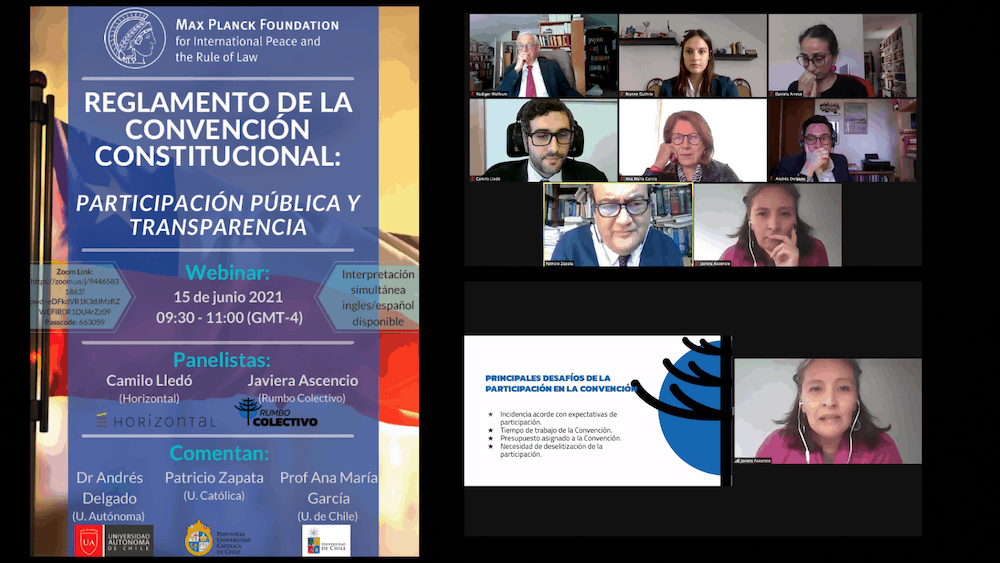The webinar brought to an end a three-part webinar series that highlighted the views of representatives of prominent Chilean think tanks and universities on the topic
On 15 June 2021, the Max Planck Foundation convened the third event in a three-part public webinar series focusing on the details of the rules of procedure of the Chilean Constitutional Convention. The event was attended by representatives from Horizontal and Rumbo Colectivo – key think tanks working on this topic – and academics from the Universidad Autónoma, Universidad Católica and Universidad de Chile.
The webinar specifically examined the means through which the Constitutional Convention could advance public participation and transparency in its work, through its rules of procedure. The event took the loose form of a debate. Initially, Camilo Lledó, representing Horizontal, discussed the importance of an inclusive process to the perceived legitimacy of the Convention and any new constitutional text drafted. He further highlighted that he believes public participation must be most concentrated during the initial stages of the constitution-making process to give the Convention time to properly systematise submissions. Following this, Javiera Ascencio from Rumbo Colectivo presented the organisation’s proposed rules governing these topics and highlighted the fact that rules relating to public engagement and transparency, discussing also the need to include all groups, including marginalised groups in meaningful and effective consultations. Next, Dr Andrés Delgado (U. Autónoma), Professor Patricio Zapata (U. Católica) and Professor Ana María García (U. de Chile) responded to these proposals, highlighting which aspects they supported and why, which additional questions these proposals raised, and proposing alternative ideas where they deemed this necessary.
The webinars in this series are aimed at advancing the public debate around the procedural arrangements of the Convention. To this end, the public was invited to ask all participants questions. These questions prompted robust discussions about topics such as whether public participation is critical at all stages of the constitution-making process, whether binding or non-binding plebiscites may be used to gather public opinion and why certain groups are advancing the idea of “self-convened cabildos”.
The webinar was moderated by Professor Rüdiger Wolfrum, scientific expert at the Foundation, and was the final event in a three-part series that explored the various details of the rules of procedure for the Constitutional Convention. It is foreseen that further activities on other substantive topics of relevance to the Convention and the public will be held in the future. It formed part of the Foundation’s project entitled “Supporting Chile’s Constitution Making Process”, funded by the German Federal Foreign Office.

